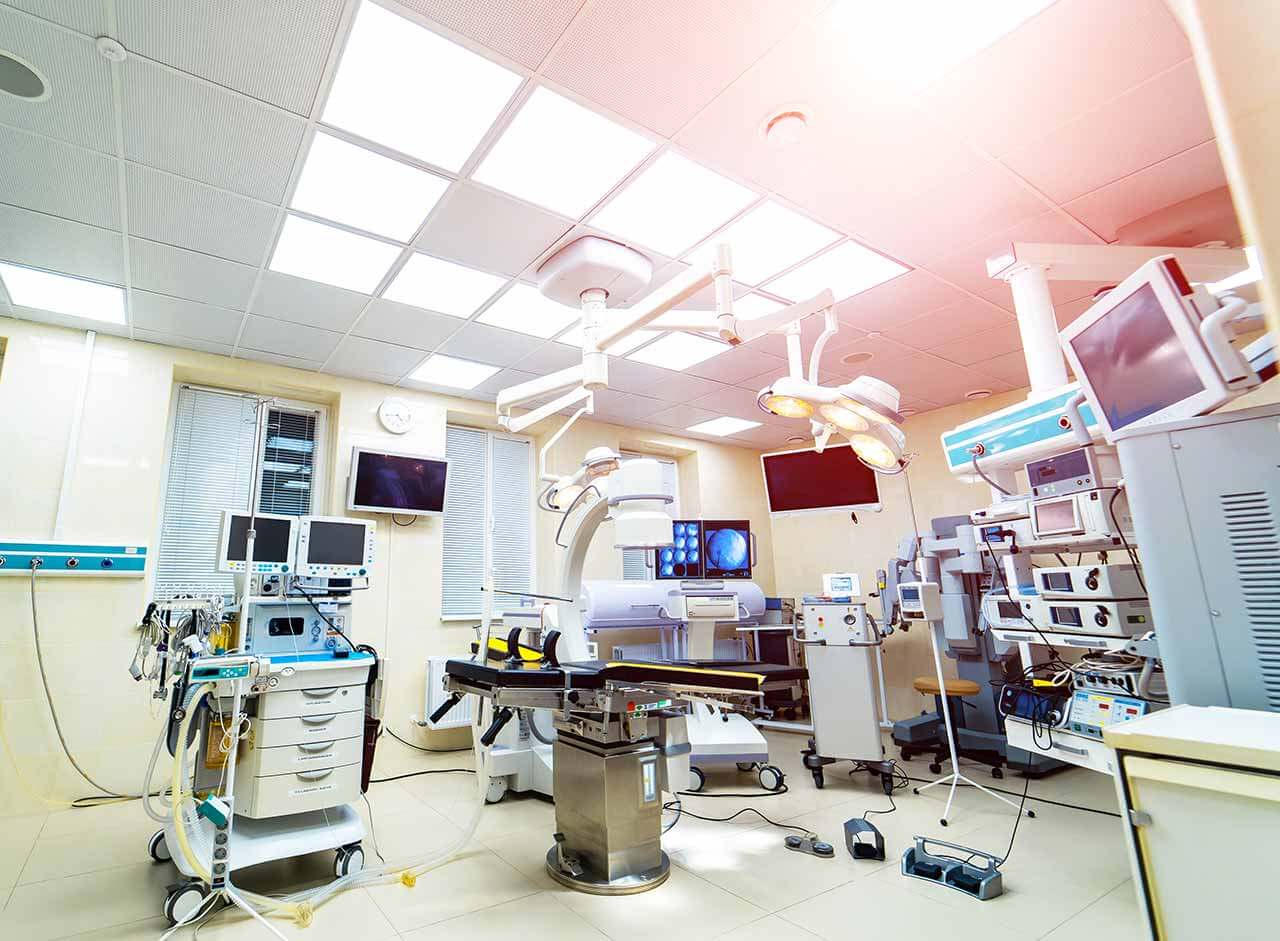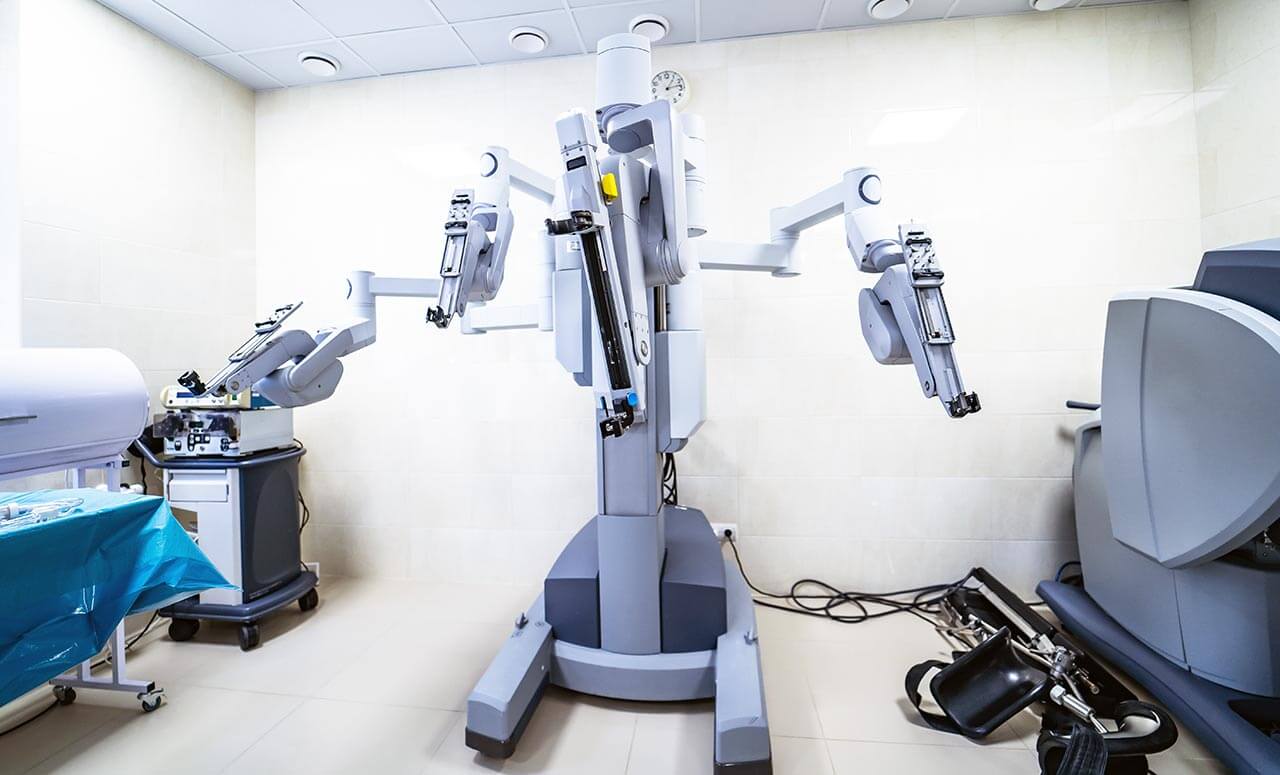
The program includes:
- Initial presentation in the clinic
- clinical history taking
- review of medical records
- physical examination
- laboratory tests:
- complete blood count
- general urine analysis
- biochemical analysis of blood
- TSH-basal, fT3, fT4
- tumor markers
- inflammation indicators
- indicators of blood coagulation
- CT scan / MRI of the abdomen
- abdominal ultrasound scan
- 1 course of chemotherapy:
- Cyclophosphamide or ifosfamide
- Cisplatin or carboplatin
- Vincristine
- Doxorubicin (Adriamycin)
- Etoposide
- Topotecan
- Busulfan and melphalan
- nursing services
- consultations of related specialists
- treatment by head doctor and all leading experts
- explanation of individual treatment plan
How program is carried out
During the first visit, the doctor will conduct a clinical examination and go through the results of previous laboratory tests and instrumental examinations. After that, you will undergo an additional examination, including laboratory assessment of liver and kidney function, ultrasound scan. Based on the received results, the doctor will elaborate the chemotherapy regimen. If necessary, related medical specialists will be involved in the elaboration of a treatment regimen (tumor board).
Chemotherapy is carried out as the inpatient procedure, with mandatory admission to the hospital. After the placement of a venous catheter, you will stay in a comfortable ward. An infusion system will be connected to the catheter, through which the required drug or a drug combination will be administered. All drugs are administered by intravenous drip, slowly, so the total duration of the infusion can be up to several hours. All this time, doctors and nurses will monitor your health condition closely.
After the course of chemotherapy, you will stay under medical supervision in the ward for a few more hours. After the completion of the chemotherapy course you will receive the medical report with detailed recommendations regarding further treatment. In the future, you will be able to have a distant consultation with your attending physician and schedule the next course of chemotherapy, if necessary.
Required documents
- Medical records
- Brain MRI/CT scan (not older than 3 months)
- Biopsy results (if available)
Service
You may also book:
 BookingHealth Price from:
BookingHealth Price from:
About the department
The Department of Pediatric Hematology and Oncology at the Rambam Health Care Campus Haifa offers the full range of diagnostics and treatment of benign and malignant hematopoietic diseases, solid tumors in children from birth to the age of 20 years. The department's doctors also specialize in bone marrow transplantation. The department is the largest and the only facility of this kind in northern Israel. It is noteworthy that the success rates of this facility reach 80%, which is comparable to the registered ones in Western Europe and the United States. The Chief Physician of the department is Prof. Dr. med. Myriam Ben Arush.
The key to successful treatment is the accurate diagnostics. The department carries out all modern examinations, which allow the doctors to determine the location of the tumor, its histological type, size, presence or absence of metastases. The diagnostic options include radioisotope scanning, genetic tests, computed tomography, PET-CT, magnetic resonance imaging, electron and laser microscopy, cytological and histological examination, endoscopic examinations, blood tests, urinalysis and other highly informative techniques. The examination results help to select the optimal treatment regimen for each patient.
The treatment protocol for neoplastic diseases in children may include chemotherapy, radiation therapy, and surgery. To provide radiation therapy for young children, the department uses equipment, which causes the least amount of side effects. Also, the specialists in pediatric hematology successfully perform bone marrow transplant (more than 400 transplant procedures during the entire clinical practice). In order to prevent infection after bone marrow transplantation, the young patients are accommodated in separate sterile rooms.
In those cases, when the surgical intervention is indicated for a child, the department's oncologists try to use minimally invasive techniques. The department widely uses laparoscopy, cryoablation, laser surgery, focused ultrasound, isolated regional vascular perfusion, embolization of tumor vessels, etc.
The best Israeli specialists work in the department. The young patients receive medical care from a multidisciplinary medical team consisting of experts in pediatric oncology and hematology, surgery, radiology, rehabilitology and psycho-oncology.
The department's range of medical services includes:
- Hematology
- Hodgkin's lymphoma
- Non-Hodgkin's lymphoma
- Acute lymphoblastic leukemia
- Acute myeloid leukemia
- Chronic lymphocytic leukemia
- Chemotherapy
- Bone marrow transplant
- Palliative care
- Oncology
- Nasopharyngeal carcinoma
- Sarcoma
- Rhabdomyosarcoma
- Osteosarcoma
- Osteoma
- Liver tumors
- Hepatoblastomas
- Embryonic tumors
- Melanoma
- Thyroid cancer
- Medulloblastoma
- Astrocytoma
- Ependymoma
- Craniopharyngioma
- Neurinoma
- Nephroblastoma and Wilms tumor
- Tumors of the adrenal glands and abdominal organs
- Germ cell tumors
- Neuroblastoma
- Retinoblastoma
- Surgical treatment, including the very latest sparing surgical techniques
- Radiation therapy
- Chemotherapy
- Other diseases, other treatment methods
Curriculum vitae
Prof. Myriam Ben Arush is the Chief Physician of the Department of Pediatric Hematology and Oncology at the Rambam Health care Campus Haifa. She is a former Chair of the Israel Society of Pediatric Hematology and Oncology and an internationally recognized expert in Pediatric Oncology. Prof. Ben Arush received a prize from the Ministry of Health for Outstanding Work and the Chevalier de la Legion d'Honneur in France. She was named one of the most caring physicians in the world by the World Medical Association for her exceptionally insightful and empathetic voice in professional discussions of the ethical, psychosocial and quality of life aspects of pediatric cancer care.
She is also a Professor in Pediatric Hematology Oncology at the Rappaport Faculty of Medicine at the Technion (Israel Institute of Technology). Prof. Ben Arush has actively participated in a wide range of clinical and basic research projects and initiatives in Pediatric Oncology. Her main research interests are the diagnostics and management of solid tumors. She is the national principal investigator in rhabdomyosarcoma and an international member of the Children's Oncology Group in the USA and other European organizations. Prof. Ben Arush has published about 150 articles in international journals. She is an Associate Editor of the Journal of Pediatric Hematology and Oncology, and an Editor of a book on psychosocial aspects in pediatric oncology.
Photo of the doctor: (c) Rambam Health Care Campus Haifa
About hospital
The Rambam Health Care Campus Haifa is the largest and the most progressive hospital in Northern Israel. The medical center was founded in 1938 and nowadays is proud of its long history, rich and successful experience in providing comprehensive medical services in all medical fields. The hospital serves more than 2 million locals, as well as the members of the Israel Defense Forces, UN Peacekeeping Forces and the United States Sixth Fleet. The medical center houses 61 inpatient departments, 73 specialized departments, 10 medical institutes and 25 laboratories. It is also the clinical and academic base of the Technion – Israel Institute of Technology.
The medical center includes the Ruth Rappaport Children's Hospital. It is a multidisciplinary medical facility specializing in the diagnostics and treatment of various pathologies, including extremely rare ones, in children of all age groups.
The total number of employees in the medical facility is 4,000 (715 doctors and 1,407 nurses). Many doctors are world-famous in the field of their clinical specialty and participate in advanced research projects in order to offer new treatment methods not only to their patients, but also to the world community.
The medical center is a leader in the field of medical care in emergency cases with a large number of victims. In addition, the hospital is certified in accordance with the strict standards of the Joint Commission International (JCI).
During the long-term and successful clinical practice, the medical center has formed a clear vision of optimal medical support and system of values. These suggest that the primary focus is always on the patient with his individual needs and wishes, while the medical services are professional, high-quality and safe. In addition, the specialists of the hospital apply the most effective and innovative treatment methods, as well as create a favorable environment, which contributes to the improvement of physical and emotional health and well-being of the patient. The key role in the daily work of the hospital is also played by a tolerant attitude towards all patients.
Photo: (c) depositphotos
Accommodation in hospital
Patients rooms
The patients of the Rambam Health Care Campus Haifa live in comfortable rooms designed in light colors. The standard room includes an automatically adjustable bed, a bedside table, a wardrobe for storing clothes, an armchair and chairs for receiving visitors, a TV, a telephone. Each room is equipped with an ensuite bathroom with shower and toilet.
Meals and Menus
The patients of the hospital are offered tasty and balanced three meals a day: breakfast, lunch and dinner. The menu also includes dietary and vegetarian dishes.
Further details
Standard rooms include:





